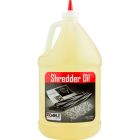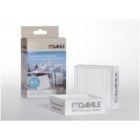What to Shred? A Guide to Keeping Your Information Safe
Having a high quality, on-site paper shredder at your home or office is the only way to make sure that your confidential documents are properly and safely disposed of. But what kind of documents need to be shredded? Well, we say: “When in doubt, shred it,” but if you need more information, here’s a guide to the kinds of documents that should be put through the shredder when no longer needed.
1. General. Any documents that contain even your address and phone number should be shredded, including old bills, insurance papers, and pre-addressed envelopes. If you have any maintenance records that are no longer applicable, they should be shredded as well, as should anything that has your signature on it, or of course, your social security number.
2. Customer Info. It is important to note that with the advent of the FACTA laws, you or your business could be sued if it can be proven that information improperly discarded by you was used in the commission of identity theft or consumer fraud. To protect yourself and your customers, you should be sure to shred the following documents when you are discarding them: account numbers, credit histories, customer lists and data, and purchase orders that may contain credit card numbers or tax ID numbers.
3. Employee Info. When your HR department is discarding employee-related documents, make sure that the following are shredded: benefits package information, papers regarding firings and other discharges or pre-employment background checks, documents relating to medical and dental plans and treatments, organizational charts, papers relating to promotions and merit raises, any records relating to contracts, and employee 401k information that is no longer relevant to your company.
4. Financial Info. The financial information of your business as well as that of your customers and employees, should, of course be treated with the utmost care. Make sure that you shred such things as: account statements, bank statements, any bills that you don’t need to keep around for tax reasons, budget statements, canceled checks not needed for taxes, credit card statements, invoices, loan contracts, and sale forecasts.
5. Legal Info. You never know what might happen if information regarding claims being made against you, or that you are making, should get into the hands of a competitor. The same is obviously true for any proprietary patent or research information. To keep any such information safe, you should be sure to shred the following when you no longer need them: papers pertaining to claims, confidentiality agreements, old expired contracts, patent and trademark papers that were not filed, research request forms for patents and trademarks, and disputes or studies related to patents, settlements and severance agreements, engineering specs, prototype documents and specs, research and testing plans and results, design and product information, and any documents that contain information about trade secrets.
6. Strategic Info. You should take special care to make sure that when you are having meetings regarding future plans, that any documentation pertaining to these plans be properly disposed of via a shredder. This includes: competitive documentation, future marketing objectives and plans, spreadsheets that contain you operating expenses, pricing information and structure, your company’s sales goals, and any other strategic plans.
7. Travel Info. If your competition knows where you’ve been, they could beat you there next time. Always shred: expired passports and visas, used plane tickets, old itineraries, luggage tags, and cell phone bills.








